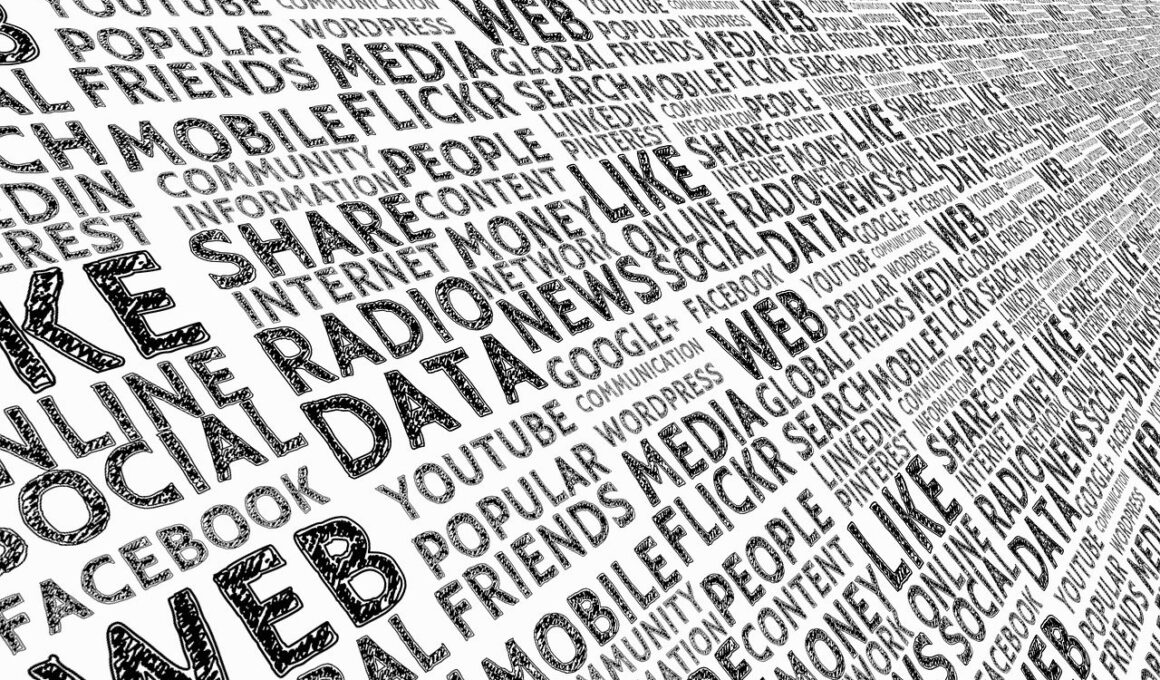Post-Outage Brand Reputation Recovery: Success Stories
In today’s digital age, social media outages can significantly impact brand reputation and consumer trust. Major incidents often lead to a collective outcry on various platforms as users seek alternative channels to express dissatisfaction or confusion. For instance, when a popular social media platform experienced a significant blackout, many brands had to navigate volatile conversations where customers voiced their frustrations. Companies quickly realized that immediate responses were integral to maintaining their reputational standing. Following the incident, successful interventions included engaging directly with users and providing transparent updates about restoration efforts. Brands that responded promptly witnessed reduced backlash and regained trust faster than those that hesitated. By utilizing proactive communication strategies, companies laid the groundwork for potential recovery. Most importantly, they not only informed their audience but also acknowledged the emotional aspect of the outage, reinforcing their value of customer relationship management. This approach allowed brands to turn adversity into an opportunity by showcasing their commitment to customer care, emphasizing the need for vigilance in social responses during and after social media crises.
The aftermath of the social media blackout was a crucial turning point for numerous brands that navigated the recovery process effectively. One case study is that of a large international coffee chain, which utilized its social media presence to foster open dialogue amidst disturbances. The brand posted a series of messages acknowledging user concerns, sharing details on how they were addressing the issue, and stressing their understanding of the inconvenience caused. This level of engagement helped them recover quickly and even bolstered overall customer loyalty. Additionally, leveraging their existing customer loyalty programs allowed them to compensate affected users with incentives, further strengthening community ties. Apart from these efforts, the company also launched campaigns focusing on positive customer experiences during the outage. These campaigns took the form of user-generated content, showcasing the creativity and resilience of their community. By focusing on user experiences and emotional engagement, this brand transformed a challenging scenario into a fruitful template for crisis management, setting a benchmark for others in the industry to follow. Their approach exemplified a modern methodology for using crises as a platform for brand reinvention, achieving success against adversity.
Case Study: Tech Giant’s Response
Another emblematic example of recovery following a significant social media outage is a renowned tech company’s swift action during a crisis. This incident flooded Twitter feeds with complaints, but the company promptly utilized their communication teams to generate timely updates. Immediately following the outage, they began to inform users through their blog and email newsletters, ensuring transparency while addressing the ongoing concerns. While proactive measures in crisis communication played a pivotal role in addressing the concerns, the company’s decision to provide real-time updates served as a cornerstone to rebuild trust. They also capitalized on user feedback to improve their services, signaling to users that their voices mattered. Furthermore, the tech giant hosted a live Q&A session on their website, allowing users to directly interact and inquire about the issues. This open forum not only alleviated several user concerns but also reinforced community sentiment. Leveraging social listening tools revealed key insights into user sentiment, enabling them to shape future customer engagement strategies effectively. The forward-looking perspective in crisis communication depicted the brand as responsive and reliable, thus preserving their reputation.
Following efforts exemplified by both the coffee chain and the tech giant, many other brands learned valuable lessons about effective post-crisis communication strategies. Brands began to evaluate their social media policies, focusing on quick engagement and responsiveness. One key takeaway was the importance of forming a dedicated crisis communications team tasked with rapid assessment and response during outages. These teams create a framework for swift action, helping brands build pre-prepared statements that can quickly be issued in case of sudden incidents. Workshops and simulations became commonplace within many organizations to enhance preparedness within social media crises. This proactive approach ensured brands were equipped with various communication templates and strategies to embrace persuasive narrative techniques, addressing potential backlash without hesitation. Furthermore, brands acknowledged the importance of empathy in communication, learning to acknowledge inconveniences swiftly while showing understanding of customer frustrations. Ultimately, brands that adopted these practices found themselves better equipped to not only weather outages but also emerge positively by prioritizing customer communication and transparency. They effectively transformed difficult situations into opportunities for strengthened brand loyalty and advocacy, turning the tables on potential reputational damage.
Future Strategies for Improvement
As brands move forward in refining their post-outage strategies, it becomes integral that they adopt a customer-centric approach to social media interactions. Emphasizing long-term community relationships over short-term promotional messages encourages users to feel valued and listened to. In anticipating possible outages, brands are encouraged to engage in building strong relationships prior to crises. This requires maintaining ongoing conversations and nurturing community sentiments consistently. Proactive engagement ensures that customers have a channel to express their thoughts freely, which can lead to valuable insights on brand perception. Additionally, integrating analytics tools can facilitate the tracking of customer sentiment over time, offering vital information that can inform strategies well ahead of an incident. By leveraging social listening capabilities, brands can plan strategic communications, prepare targeted messaging, and build a repository of responses to specific scenarios. Create a comprehensive guide outlining the appropriate steps to take upon experiencing a crisis while integrating meme moments or humor carefully into messages post-recovery. The forward-thinking approach allows brands to retain customer trust while showcasing their lightheartedness and adaptability, thus fostering stronger allegiance in an unpredictable environment.
Moreover, advancing customer education around social media channels is vital in steering conversations during crises. By creating informative content or blog posts that help demystify operational challenges faced by brands, companies can foster user understanding. Customers often appreciate transparency, and by providing insight into the reasons for outages, brands can mitigate frustration. This can also open avenues for dialogues focused on constructive engagement rather than fallout discussions alone. In these communications, sharing useful resources, educating customers about how to seek help, or initiating community discussions are all valuable methodologies. Brands may also initiate regular feedback loops, asking users for their input on how they would like crisis communication handled. These insights can feed future strategies, ensuring ongoing improvement and adaptation to anticipated customer needs. In embracing these practices, businesses position themselves to not only handle outages effectively but also generate goodwill among their audiences. Overall, nurturing greater understanding and fostering open communication from the outset equips brands with lasting resilience and empowers customers to navigate crises collaboratively.
Conclusion
The effectiveness of post-outage recovery strategies serves as a crucial indicator of a brand’s commitment to customer care and engagement. Every crisis offers valuable lessons that can enhance overall strategy around brand reputation management. The takeaway remains clear; brands that prioritize real-time communication, sustain empathy, and anticipate potential issues can emerge stronger from crises. The case studies of various brands highlight the importance of listening to consumer concerns and acting decisively in the face of adverse situations. Moreover, developing a robust crisis response framework plays a critical role in aiding organizations to cultivate connection and loyalty amongst consumers. As lessons learned from previous outages inform future practices, effective communication channels and validated strategies will become even more indispensable. Looking forward, it is necessary that brands foster relationships built on trust and openness, allowing for improved dialogues even in times of uncertainty. In this rapidly changing social media landscape, companies that embrace a proactive, empathetic, and customer-focused approach will undoubtedly thrive amidst challenges, turning potential crises into opportunities for growth and lasting impact.
Ultimately, navigating the aftermath of social media blackouts reveals significant insights into the dynamics of brand reputation recovery. Companies worldwide are likely to face similar challenges as technology and communication methods evolve. By comprehensively examining case studies and insights from successful recovery efforts, brands can enhance their own crisis communication protocols to foster stronger community connections. Such strategic frameworks also aid in equipping teams with the foresight needed to maintain a positive approach, regardless of the circumstances. Transparency will emerge as pivotal in fostering consumer trust and reliability moving forward. Companies willing to invest in robust customer education will find themselves in a more favorable position to weather the storms of social media crises. Successful turnaround stories showcase the necessity of balancing between acknowledging consumer concerns and showcasing brand character during downturns. Insights gained from such experiences continue to underline the importance of adaptability within brand strategies. Building relationships on mutual understanding and trust will help sustain long-term success. Through the lens of these triumphs, the resilience of brands continues to inspire positive engagement in uncertain times ahead.


